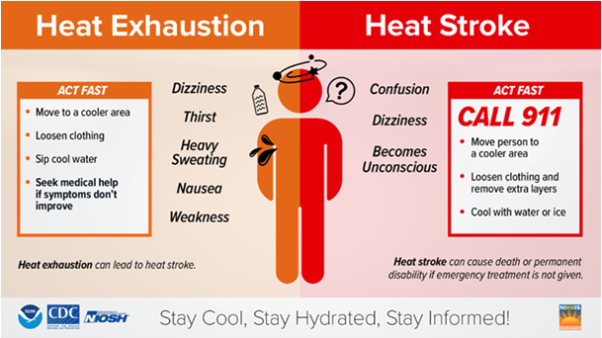Heat Stress Awareness
go.ncsu.edu/readext?1069885
en Español / em Português
El inglés es el idioma de control de esta página. En la medida en que haya algún conflicto entre la traducción al inglés y la traducción, el inglés prevalece.
Al hacer clic en el enlace de traducción se activa un servicio de traducción gratuito para convertir la página al español. Al igual que con cualquier traducción por Internet, la conversión no es sensible al contexto y puede que no traduzca el texto en su significado original. NC State Extension no garantiza la exactitud del texto traducido. Por favor, tenga en cuenta que algunas aplicaciones y/o servicios pueden no funcionar como se espera cuando se traducen.
Português
Inglês é o idioma de controle desta página. Na medida que haja algum conflito entre o texto original em Inglês e a tradução, o Inglês prevalece.
Ao clicar no link de tradução, um serviço gratuito de tradução será ativado para converter a página para o Português. Como em qualquer tradução pela internet, a conversão não é sensivel ao contexto e pode não ocorrer a tradução para o significado orginal. O serviço de Extensão da Carolina do Norte (NC State Extension) não garante a exatidão do texto traduzido. Por favor, observe que algumas funções ou serviços podem não funcionar como esperado após a tradução.
English
English is the controlling language of this page. To the extent there is any conflict between the English text and the translation, English controls.
Clicking on the translation link activates a free translation service to convert the page to Spanish. As with any Internet translation, the conversion is not context-sensitive and may not translate the text to its original meaning. NC State Extension does not guarantee the accuracy of the translated text. Please note that some applications and/or services may not function as expected when translated.
Collapse ▲Welcome to the garden! The classic signs of southern spring and approaching summer are showing up: the forests are greening up, critters are singing, chirping and looking for love. With the recent rains, even here in western NC the air can be relatively hot and stuffy.
Many of us are getting outside and cleaning up the yard to get our gardens ready for planting. Part of being prepared with our garden tools, insect repellant and sunscreen as we go out into that heat to do work, is to remind ourselves about the risks of heat-related problems and strategies to deal with them. The seasonal temperature outlook map issued by NOAA (National Oceanic and Atmospheric Administration) predicts temperatures to be 40-50% above average through July. “Know Before You Grow” is more than just plant and place knowledge. It’s knowing what to to expect out in the garden and what being prepared means for both you and your plants.
Gardening is a workout. Did you know that during activity, the body releases more than 70% of the energy used by muscles as heat. Yup, we sweat. That heat loss is crucial to prevent an excessive rise in body temperature during activities. If heat exchange between the body and the environment becomes difficult, such as in hot or humid environments, our garden experience can be a bad one. Ignorance, like it usually does, can really make the situation much worse.
Technically speaking: A heat-related illness (HRI) is a potentially fatal disorder caused by elevated body temperatures from internal heat produced by activity or external environmental heat added to the body that cannot be removed to maintain normal body temperature. Think about the courageous firefighters battling the blazes in our area recently who were facing the ferocious heat from those fires!
Symptoms of an HRI may be difficult to recognize and may occur in no particular order. They may include:
- Muscle cramps and weakness.
- Dizziness, headache, and irritability.
- Rapid, weak pulse.
- Vomiting.
- Profuse sweating with cool, clammy skin leading to hot, dry skin.
- Loss of consciousness.
If you suspect you or your garden partners are experiencing a heat related problem, stop work and begin measures to cool down. Remember to Hydrate Often! Let’s keep our garden experiences fun – ’cause if it ain’t fun, it ain’t gettin’ done! For more information contact me at minda_daughtry@ncsu.edu or 828-554-1237.





